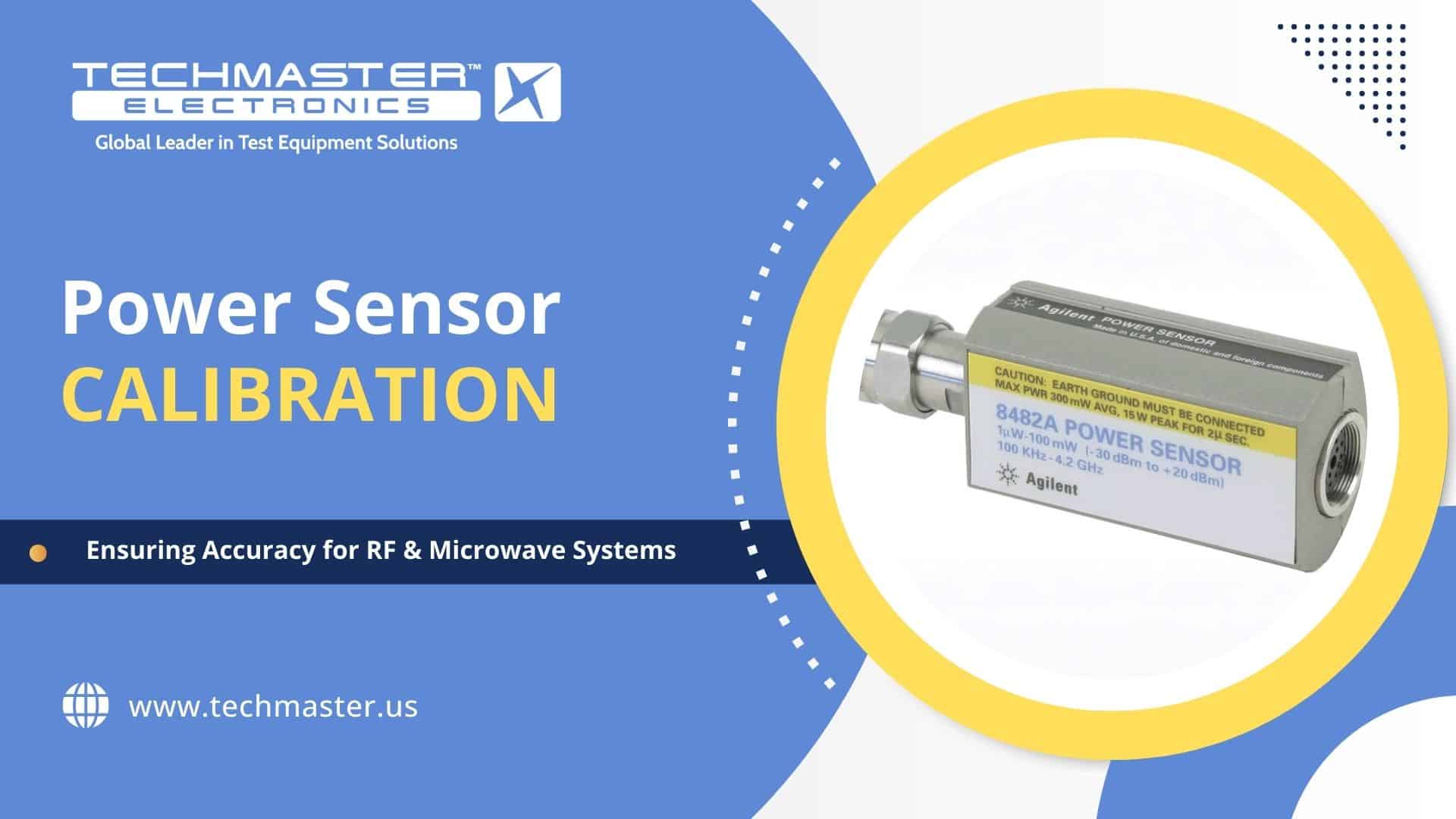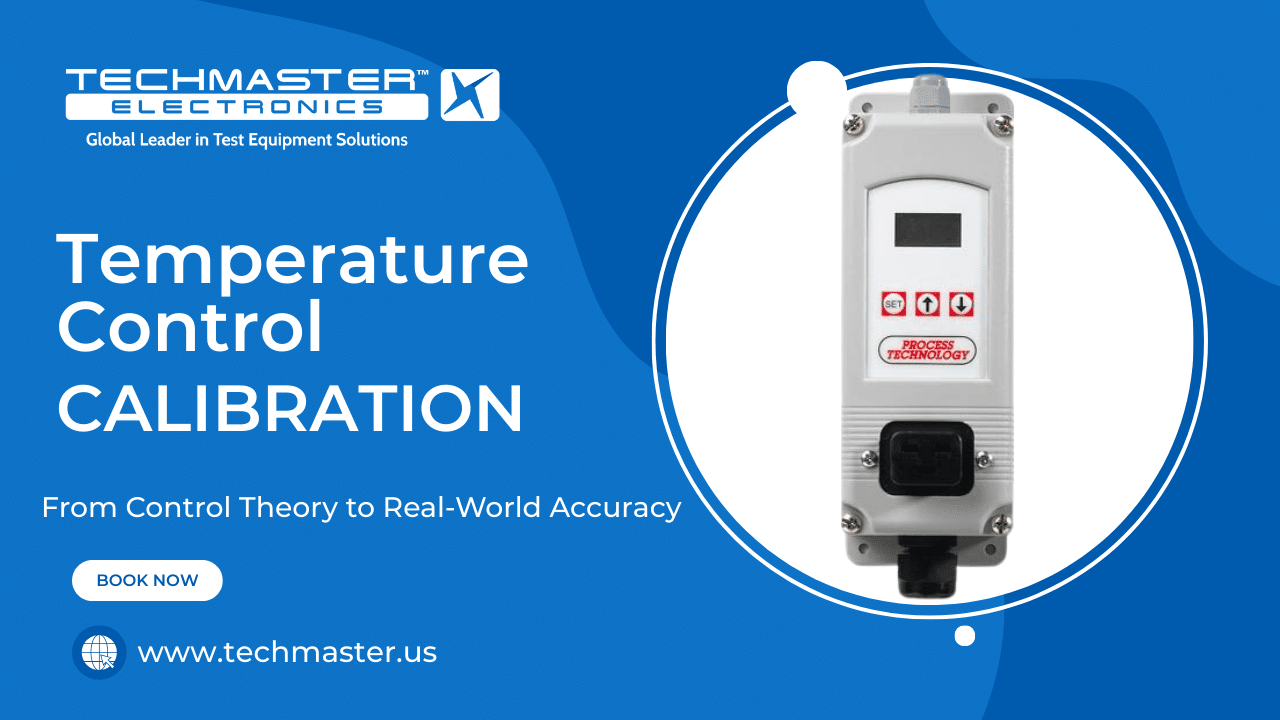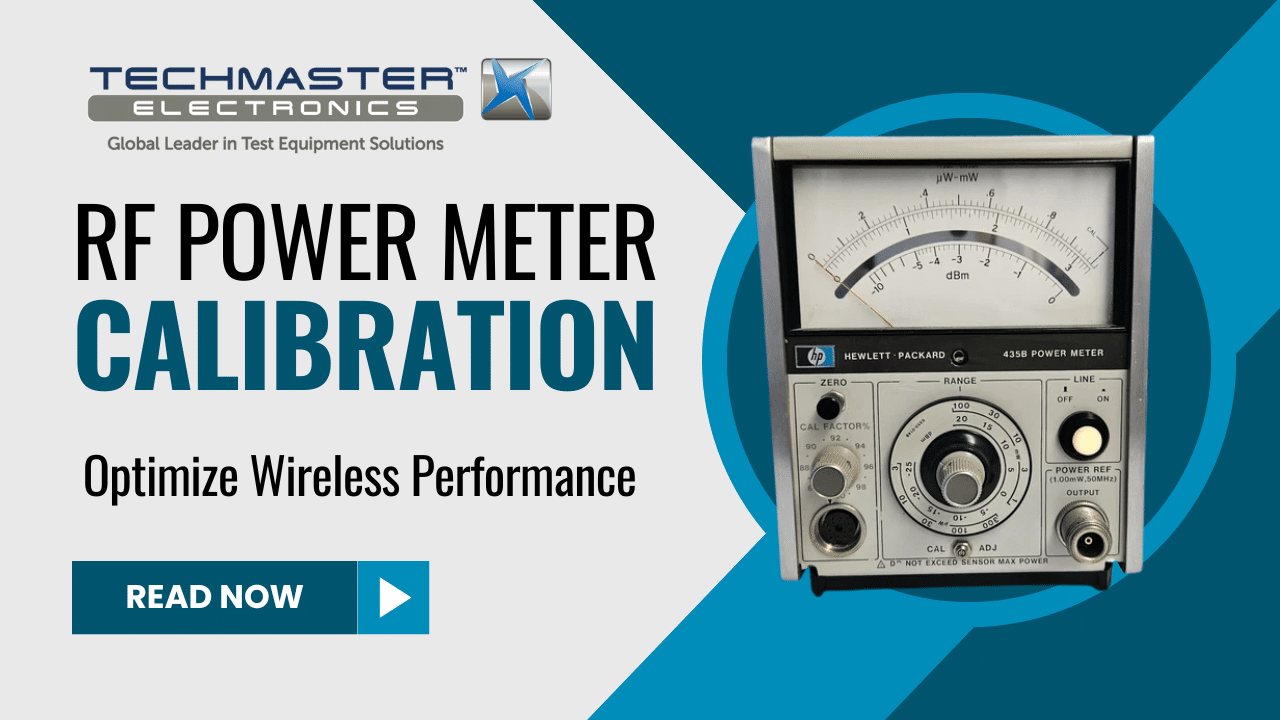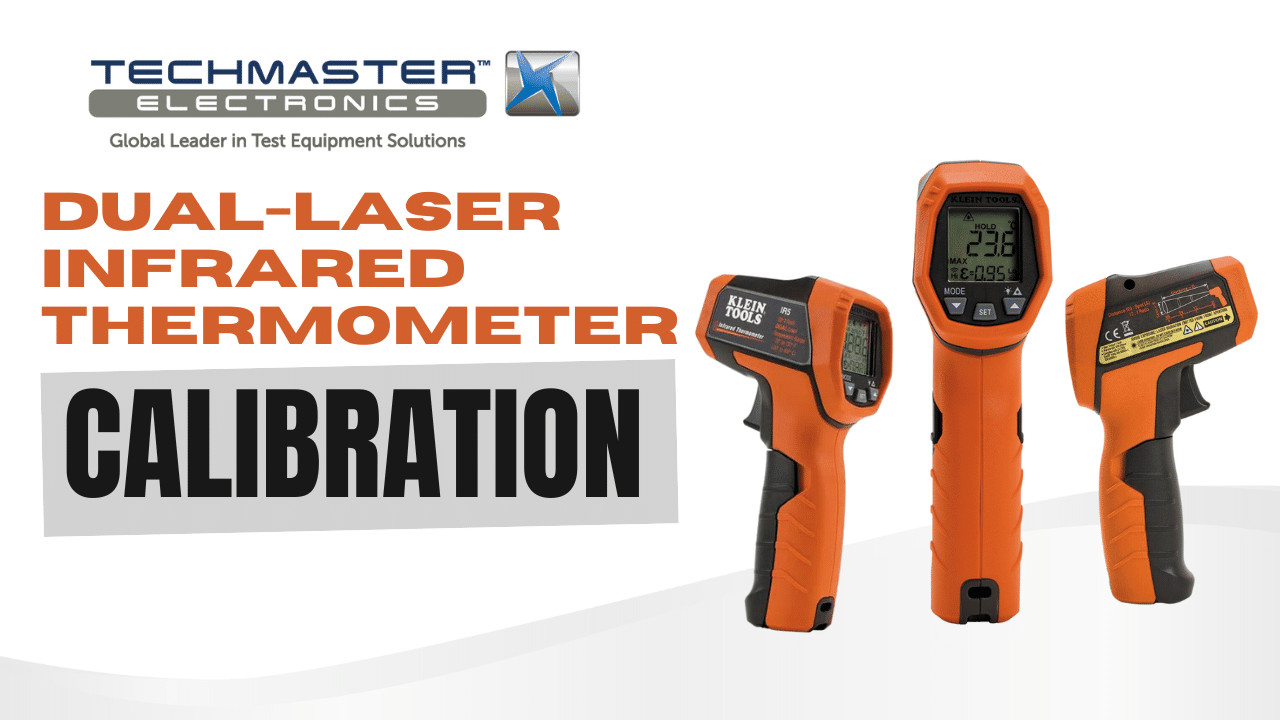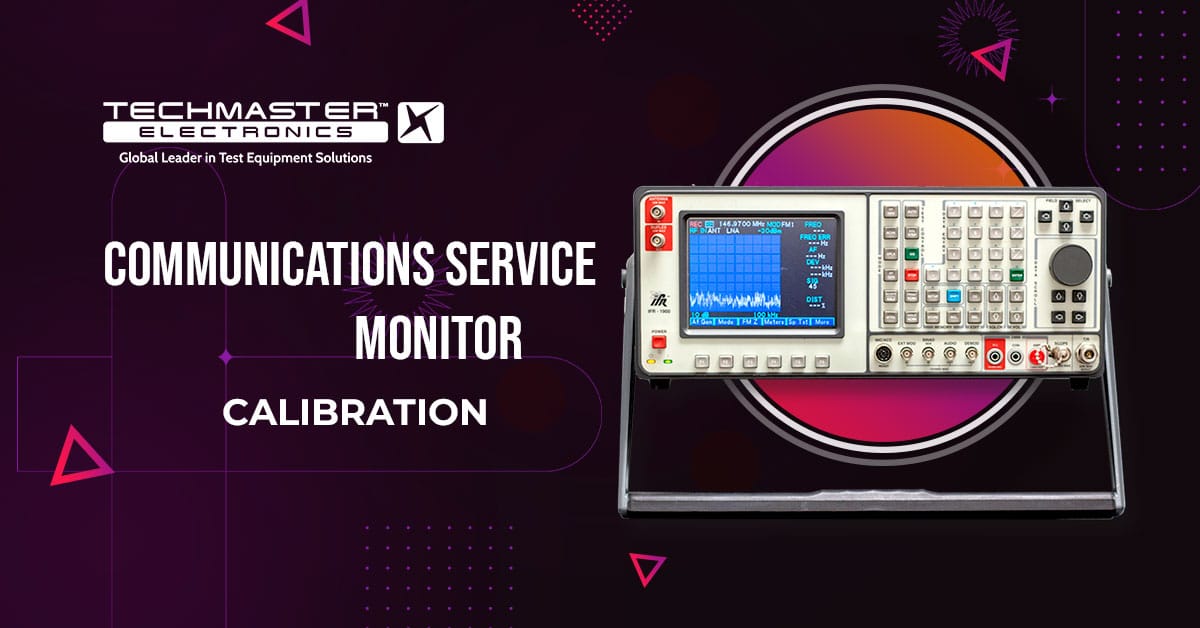Signal generator calibration ensures precise, reliable signals for critical applications in telecom, aerospace, and electronics. Without it, you risk signal drift, costly errors, or regulatory violations. Discover why calibrating signal generators is essential, how Techmaster’s ISO/IEC 17025-accredited services deliver results, and where to calibrate signal generators for maximum reliability.
What Are Signal Generators and Their Applications?
Signal generators are essential electronic instruments that produce continuous or modulated waveforms across various frequencies. They support analog and digital signal testing and are vital for equipment verification, diagnostics, and R&D development.
Overview of Signal Generators
-
RF Signal Generators: Generate high-frequency signals for telecom and RF testing
-
Microwave Signal Generators: Support GHz-range signals for radar and defense systems
-
Function Generators: Output sine, square, or triangle waveforms for general electronics testing
Why Precision Matters
-
Analog signals: Sensitive to frequency drift and noise
-
Digital signals: Require stable timing and clean modulation
Typical Applications
-
Telecom: 5G base station and signal integrity testing
-
Aerospace & Defense: Radar system calibration, EMI/EMC compliance
-
Electronics: Functional testing and component validation
-
R&D Labs: Accurate stimulus for prototyping and circuit debugging

Need reliable calibration? Contact us for a free quote!
Why Is Periodic Calibration Essential?
Signal generators—like any high-precision instrument—don’t stay accurate forever. Their performance degrades over time due to internal component aging, temperature variations, and environmental exposure. Left unchecked, this drift can silently introduce errors into your testing process.
Think of it this way: if your signal generator is even slightly off, every piece of equipment it validates might be off too. In telecom, that means degraded call quality or dropped connections. In aerospace? A small frequency deviation could impact radar accuracy or interfere with critical avionics testing. And in electronics manufacturing, small inconsistencies can result in failed products, costly rework, or worse—silent field failures.
What Happens If You Skip Calibration?
-
Telecom: Signal drift leads to dropped calls and data errors.
-
Aerospace: Miscalibrated radar or communication systems can jeopardize mission safety.
-
Electronics: Studies show calibration neglect can increase production errors by up to 15%.
-
Compliance: Failing to meet standards like AS9100 or FDA 21 CFR 820.72 can result in audit findings or regulatory action.
Key Benefits of Calibration
-
Peace of mind: Know that your measurements are trustworthy.
-
Efficiency: Prevent costly downtime and troubleshooting caused by hidden signal issues.
-
Audit-readiness: Be prepared for customer and regulatory audits with complete documentation.
-
Long-term ROI: Calibration is a modest operational cost that protects your capital investment and production integrity.
So while skipping calibration might seem like a shortcut, it’s often a detour to bigger problems. Regular calibration is simply smart engineering—and smart business.
How Does Calibration Work?
Calibration involves comparing the signal generator’s output to a known, traceable reference under controlled conditions.
Typical Calibration Workflow
A standard signal generator calibration includes:
-
Initial Checks – Inspect for damage and verify basic functionality.
-
Stabilization – Let the device settle in a controlled environment.
-
Output Testing – Measure frequency, amplitude, and modulation.
-
Reference Comparison – Compare results with NIST-traceable standards.
-
Adjustments – Fine-tune if values deviate from spec.
-
Final Tests & Certificate – Confirm accuracy and issue ISO/IEC 17025-compliant documentation.
You receive a full calibration report:
-
ISO/IEC 17025-accredited certificate
-
Measurement uncertainty and traceability to NIST
We verify your Signal Generator’s output against NIST-traceable standards, delivering audit-ready reports.

Common Signal Generator Calibration Challenges
Even with proper use, signal generators can develop subtle performance issues:
-
Frequency Drift: Deviation from target frequency over time
-
Amplitude Inaccuracies: Affect signal strength and system response
-
Phase Noise & Jitter: Interferes with signal clarity
-
Harmonic Distortion: Impacts waveform integrity
These lead to test failures, bad data, and regulatory noncompliance.
Compliance with International Standards
Techmaster’s services meet or exceed major global and industry-specific calibration standards:
-
ISO/IEC 17025 (ANAB-accredited)
-
NIST Traceability on all data
-
ANSI/NCSL Z540.1 and ISO 9001
-
MIL-STD-45662A for defense programs
Benefits:
-
Globally recognized documentation
-
Seamless regulatory and supplier audits
-
Trusted by OEMs, defense contractors, and quality managers worldwide
Techmaster’s ISO/IEC 17025 certificates meet OEM requirements worldwide.
In-House vs. Professional Calibration
| Criteria | In-House | Techmaster |
|---|---|---|
| Cost | Significant upfront investment for equipment and training | Affordable, all-inclusive |
| Accuracy | Limited by internal standards | NIST-traceable, ISO/IEC 17025 |
| Turnaround | Variable | 3–5 days, rush available |
| Documentation | Often incomplete | Audit-ready certificates |
| Tech Tools | Basic instruments | Fluke, Agilent, calibrated assets |
Plus: Techmaster Portal provides 24/7 access to certificates and asset tracking.
How Often Should You Calibrate?
Calibration intervals depend on:
-
Manufacturer recommendations
-
Frequency and intensity of use
-
Environmental conditions (temperature, dust, vibration)
“Telecom Signal Generators need calibration every 6–12 months.”

Techmaster’s Added Value
When choosing a calibration provider, you’re not just paying for measurements—you’re investing in uptime, peace of mind, and long-term reliability. Techmaster understands that, which is why our service goes beyond the standard bench calibration.
-
On-Site Calibration: We come to you, minimizing downtime and eliminating the logistics of packing and shipping sensitive equipment. This is especially critical in high-throughput environments where every hour counts.
-
Techmaster Portal: Your time is valuable. With our secure online portal, you can instantly access calibration certificates, schedule upcoming services, and view your equipment’s historical data. No more digging through spreadsheets or misplaced paper files.
-
Repair & Rental Services: If your equipment fails during calibration, we don’t leave you stranded. Our rental program keeps you operational while your unit is being serviced. This continuity is a lifeline for labs, production floors, and QA teams who can’t afford interruptions.
-
Tailored Programs: We work closely with your team to build calibration plans based on your usage, environment, and compliance requirements. Whether you need one-time service or multi-site scheduling, Techmaster adapts to your workflow—not the other way around.
Maximize uptime with Techmaster’s services—get a quote!
Case Studies and Customer Feedback
Real-world results speak louder than any brochure. Here’s how Techmaster’s calibration services have made a measurable difference:
Case Study: California Telecom Provider
One of the leading telecom companies on the West Coast faced recurring signal quality issues during its 5G rollout. Their engineering team suspected that aging test equipment might be part of the problem but lacked bandwidth to send tools off-site.
By switching to Techmaster’s on-site signal generator calibration, the company avoided weeks of shipping delays and downtime. Within two visits, Techmaster restored the accuracy of over a dozen RF generators. The result?
-
20% reduction in test system downtime
-
Faster deployment timelines for 5G base stations
-
Passed ISO audit with zero findings
Testimonial from Electronics QA Manager
“Techmaster’s fast turnaround saved our production schedule. Their documentation was spotless, which made our annual audit surprisingly smooth.”
Aerospace Client Feedback
“We rely on Techmaster because their ISO/IEC 17025 certificates consistently meet the requirements of our Tier 1 OEM partners. We don’t take calibration lightly, and neither do they.”
These stories are just a glimpse of how thoughtful calibration can drive real operational gains.
FAQs
How long does signal generator calibration take?
Techmaster completes most in 3–5 business days, with priority options available.
Where to calibrate signal generators?
Choose a lab with ISO/IEC 17025 accreditation, NIST traceability, and RF experience—like Techmaster.
What if a signal generator isn’t calibrated?
Expect signal drift, product failures, and regulatory violations.
Does Techmaster offer repairs?
Yes—we offer repair and rental services to keep your lab running.
Ready to Ensure Accuracy and Compliance?
Don’t risk costly errors! Techmaster’s signal generator calibration services ensure precision and compliance.
Request a free quote today via phone, email, or quote form to optimize your equipment!



